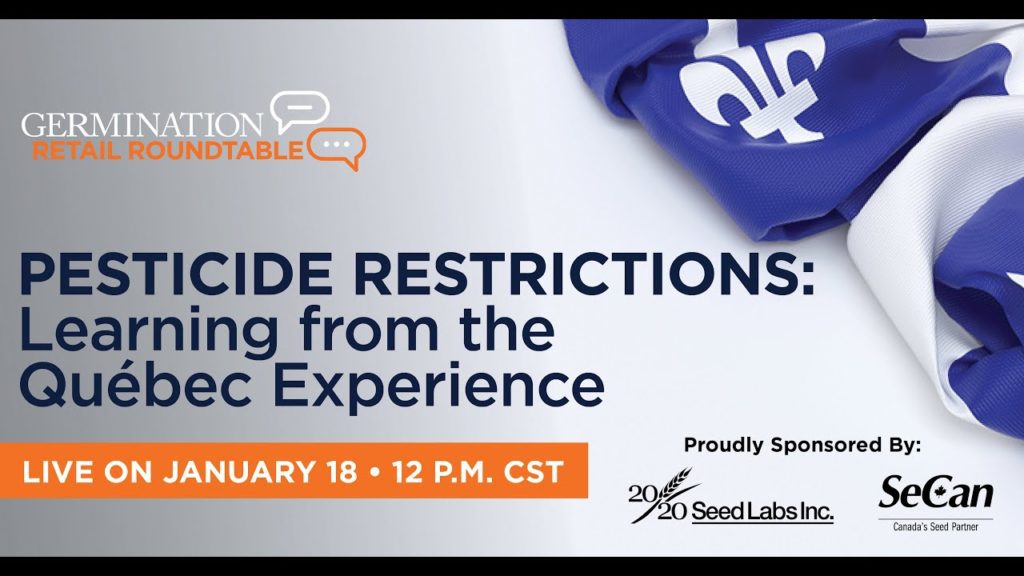
CEO, Les Grains Semtech
In 2015, the Quebec provincial environment ministry published a study showing traces of certain pesticides were found in Quebec rivers. The study furthered fuelled public fear of crop protection products, which inevitably led to new regulations that put restrictions on the use of any products containing atrazine, chlorpyrifos, clothianidin, imidacloprid and thiamethoxam.
In Quebec, growers willing to use any products containing these active ingredients now require a prescription from an agronomist in every situation and for every field. This means agronomists are now a little like doctors, filling in special forms for every grower they prescribe these products to. They are liable for all pesticides they prescribe. For retailers, additional work also has to be done, as they must document all their sales of these products.
Despite initial frustrations around this legislation, our industry has successfully worked with the province to mitigate some of the difficulties that resulted from the legislation. It began by surveying stakeholders to find out what they thought of and how they were coping with the changes.
The seed industry among other stakeholders was given the opportunity to provide input into the regulations at the very last step of the project — therefore our contribution was rather modest. A plan has since been developed through a collaboration between the province and Ordre des agronomes du Québec (OAQ) to help ensure clarity on what is required from agronomists, retailers and growers, and standardize record-keeping and make it easier via a framework for applying the prescription regulations so they work for everyone. OAQ created reference grid and guidelines to help the agronomists in their diagnostic processes.
Still, the Quebec seed industry is hampered by the restrictions, which add administrative burdens for growers and retailers. It’s too bad we, as a value chain, didn’t previously in past years deal with common-sense approach of limiting the use of these products to situations where they are needed, using an approved set of best management practices at the farm level.
Association des marchands de semences du Québec (AMSQ) held an informative session on June 2 for its members with representatives from the province and OAQ as speakers.
The purpose of this virtual conference was to help decision makers within companies doing business in Quebec to better understand the current regulations and the sensitivity of the general public towards environmental topics so they can act accordingly. It wouldn’t be the first time where Quebec is the port of entry in Canada for similar concerns/trends/situations that first took place in Europe before expending elsewhere in Canada.
The province has committed to maintaining and monitoring for presence of active ingredients exceeding threshold levels, and taking legislative actions to extend agronomic justification and prescription to a greater number of pesticides deemed dangerous. They also intend to provide for the mandatory periodic review of the list of regulated pesticides — meaning more products could be added.
AMSQ and Seeds Canada are encouraging a nationwide discussion on how to be proactive in giving agronomists and retailers the tools they need to ensure crop protection products are deployed appropriately, and to also help educate the public on why these tools are needed and how they can be properly managed to ensure the environment is protected — before flawed and restrictive legislation is forced on them.
I am happy to talk about this issue, so please email me at any time at a.bergeron@lesgrainssemtech.com and I will be pleased to provide an overview and how you can be a part of proactive change in your own province.












